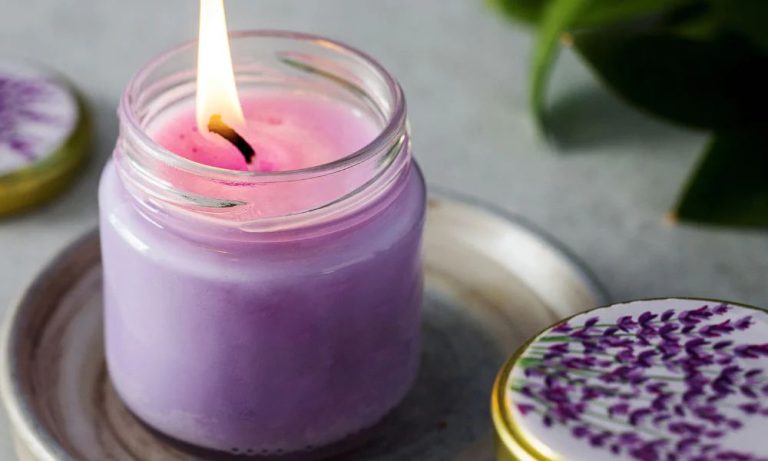How Effective Is Citronella Oil Against Mosquitoes?
Citronella oil is an essential oil derived from lemongrass plants in the Cymbopogon genus. It has a strong, lemon-like aroma and has long been used as a natural insect repellent. Mosquito repellents are important because mosquitoes transmit a number of serious diseases that can affect humans and animals, including malaria, dengue fever, West Nile virus, Zika virus, and others. According to the World Health Organization, mosquito-borne diseases account for over 1 million deaths every year. Effective mosquito control measures like repellents are crucial to reducing the spread of these diseases.
How Citronella Oil Repels Mosquitoes
Citronella oil is an effective mosquito repellent because it masks attractants like lactic acid and carbon dioxide that draw mosquitoes to humans (1). The strong aroma of citronella oil overpowers these chemical signals that mosquitoes use to locate hosts. Additionally, citronella oil is thought to block mosquito receptors that detect lactic acid and carbon dioxide, making it harder for them to zero in on their targets (1). When citronella oil molecules bind to these receptors, they effectively jam the signal and create confusion, making it more difficult for mosquitoes to locate and bite hosts saturated with the oil.
Citronella oil has a sharp, lemon-like scent that creates an invisible barrier, preventing mosquitoes from being attracted to areas where the oil’s aroma is present. It serves as a sensory disruptor, masking human scent cues and interfering with the mosquito’s ability to hone in on targets. The potent aroma overwhelms the mosquito’s sense of smell, blocking their ability to detect human presence and blood meals (1).
Sources:
(1) https://www.anveya.com/products/buy-pure-citronella-essential-oil-mosquito-repellent-diffuser-skin
Effectiveness of Citronella Oil
Research studies have tested the effectiveness of citronella oil in repelling mosquitoes. One study published in the Tropical Medicine & International Health journal examined the duration of protection from three citronella-based repellents compared to DEET-based repellents. They tested formulations containing 5-15% citronella oil and found protection times of only 20-30 minutes, compared to 3-5 hours for DEET repellents. The concentration of citronella oil was a key factor, with higher concentrations providing longer protection.
Another study in the Tropical Medicine & International Health journal tested 10% and 20% citronella and found complete protection from bites for only 2 hours, compared to 4 hours for 20% DEET. The research indicates that citronella oil can repel mosquitoes, but requires high concentrations and frequent reapplication to be effective. Protection times are much shorter compared to DEET.
Comparison to DEET
DEET is considered the gold standard for insect repellents and has been extensively studied for effectiveness against mosquitoes. In comparison studies, DEET was found to provide longer protection than citronella oil.
One study directly compared the repellency of citronella oil to DEET by measuring the complete protection time (CPT), which is the duration of protection against mosquito bites. The CPT of DEET was 360 minutes, much longer than the CPT of citronella oil which was only 10.5 minutes (Yoon et al., 2015).
Another analysis found that citronella oil initially provides protection comparable to DEET when used in the same concentrations. However, the effectiveness of citronella oil diminishes rapidly, while DEET maintains a longer duration of effect against mosquitoes (Chang & Mehr, 2019).
Overall, studies show DEET outperforms citronella oil in the duration and consistency of protection from mosquito bites.
Using Citronella Candles and Torches
Citronella candles and torches are commonly used as a way to repel mosquitoes in a limited area, such as a patio, deck, or campsite. The theory is that the citronella oil in the candle or torch will be heated and released into the air, creating a repellent barrier. However, research has shown that citronella candles and torches have significant limitations in their effectiveness against mosquitoes.

One key issue is that the area of effect from a citronella candle or torch is very small. Studies have found that citronella candles only provide protection in a range of a few feet around the candle. Outside of this small bubble, mosquito density was not affected (NY Times). Even within the protected zone, a citronella candle was only able to repel about 42-61% of mosquitoes in one study (Science Magazine). So the candles provide only partial protection in a very limited area.
Another issue is that wind can disrupt the protective zone around a candle and allow mosquitoes to penetrate the area. Citronella also evaporates quickly, so the effects do not last very long. Frequent reapplication is required to maintain even a small bubble of protection.
Overall, while citronella candles and torches may provide some limited protection from mosquitoes directly around the flame, they are ineffective for protecting a general area or group of people. Their range and duration of effect are too constrained compared to other repellent options.
Other Citronella Products
In addition to candles and torches, citronella oil is also commonly used in sprays, lotions, and wristbands as a mosquito repellent. However, research indicates these citronella products may be less effective than expected.
One study published in the journal Tropical Medicine & International Health compared citronella-based repellents, like sprays and lotions, to DEET repellents [1]. They found that citronella provides only about 2 hours of protection, while DEET can protect for 3-5 hours. The citronella preparations also had to be reapplied more frequently.
Citronella wristbands are also popular but may provide limited protection. An analysis by The Conversation found wristbands only repel mosquitos at very close range [2]. Mosquitos can still bite through clothing. While citronella wristbands provide some protection, they may need to be combined with other repellents for full effectiveness.
Overall, citronella sprays, lotions, and wristbands do provide some mosquito protection, but may be less effective than expected. They require frequent reapplication and may work best when paired with other repellent strategies.
Safety and Side Effects
Citronella oil is generally considered safe when used appropriately. However, there are some potential side effects to be aware of:
Skin irritation: Citronella oil can cause mild irritation when applied directly to the skin, especially in those with sensitive skin. It’s best to dilute it with a carrier oil before use (1).
Eye irritation: Getting citronella oil in the eyes may cause stinging and irritation. Care should be taken to avoid contact with the eyes (2).
Ingestion: Swallowing citronella oil is likely unsafe and can potentially cause lung damage. It should always be kept out of reach of children (1).
Allergic reactions: Some people may experience allergic reactions like skin rashes with topical use of citronella oil, especially with prolonged exposure. Test for allergies before extensive use (2).
Inhalation: Inhaling diffused citronella oil is generally safe, but prolonged inhalation of large amounts may potentially lead to lung irritation (1).
Overall, citronella oil should be used with care and caution, following dosage guidelines and avoiding ingestion or contact with eyes. Those with sensitive skin or allergies should do a patch test before use (3).
DIY Citronella Oil Recipes
If you want to make your own natural mosquito repellent using citronella oil at home, there are some simple recipes you can try.
This homemade essential oil insect repellent spray from Tasty Yummies[1] combines citronella, peppermint, and tea tree oils:
- 2 ounces distilled or boiled water
- 1.5 ounces witch hazel or vodka
- 30 drops citronella essential oil
- 25 drops peppermint essential oil
- 15 drops tea tree essential oil
Simply mix all the ingredients together in a spray bottle. Shake before each use and spray it on exposed skin or clothing as needed.
PCC Markets[2] has a recipe for a homemade insect repellent using citronella, lavender, pennyroyal, tea tree, and jojoba oils mixed with almond oil:
- 1/2 ounce citronella oil
- 1/4 ounce lavender oil
- 1/8 ounce pennyroyal oil
- 1/8 ounce tea tree oil
- 1/8 ounce jojoba oil
- 16 ounces almond oil
Add all the oils to the almond oil in a glass jar. Apply this repellent to skin and reapply every 1-2 hours as needed.
[1] https://tasty-yummies.com/homemade-essential-oil-insect-repellent-spray/
[2] https://www.pccmarkets.com/recipe/homemade-insect-repellent/
Other Natural Mosquito Repellents
In addition to citronella, there are some other natural essential oils that can help repel mosquitoes:
Lemongrass oil is extracted from the lemongrass plant. Research shows that it provides protection against several types of mosquitoes like Aedes aegypti and Culex quinquefasciatus. The oil contains geranial and neral compounds that have insecticidal properties.[1]
Eucalyptus oil contains a compound called eucalyptol that has been found in studies to provide up to 96% protection against mosquitoes for 2 hours. It works against the southern house mosquito, Culex quinquefasciatus.[2]
Clove oil contains eugenol which has mosquito repelling abilities. Some studies indicate it can provide about 92% protection from mosquitoes for up to 3 hours.
Catnip oil, extracted from the catnip plant, contains nepetalactone which strongly repels various mosquito species. Research shows it can be up to 10 times more effective than DEET.
Thyme oil and geraniol also exhibit mosquito repelling properties due to the presence of thymol and geraniol compounds.
Conclusion
In summary, citronella oil does have some effectiveness against mosquitoes, but it is not as strong or long-lasting as synthetic repellents like DEET. Research shows that citronella oil provides only about 1-2 hours of protection compared to 4-8 hours for DEET products.
The most effective way to use citronella oil is in candles or diffusers that allow the aroma to permeate an outdoor area. Wearable citronella oil products like bracelets tend to have minimal effectiveness. Citronella plants provide mild repellency when planted around patios and decks.
Citronella oil is considered safe for topical use, with few side effects. However some people may be irritated by the strong scent. It does not need to be reapplied as often as DEET. Other plant-based oils like lemongrass, peppermint and eucalyptus also have mosquito repellent properties.
While not as powerful as DEET, citronella oil is a more natural option that can help reduce mosquito bites in mild to moderate conditions. Using a combination of citronella oil, protective clothing and other precautionary measures can decrease reliance on harsh synthetic chemicals.



